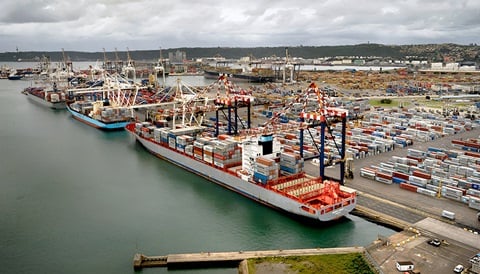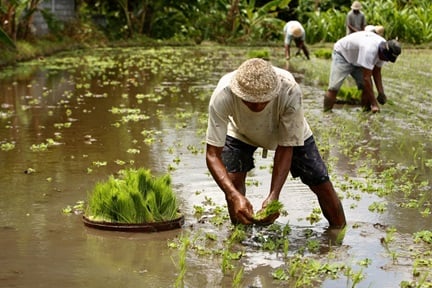Major gold deposits discovered in Uganda
Discovery has the potential to revolutionise the country’s resource sector

In June, Ugandan officials announced that approximately 31 million metric tonnes of gold ore had been discovered in the country. This could result in as much as 320,158 metric tonnes of refined gold, worth an estimated US$12 trillion. The discovery has the potential to instigate a surge in investment in the sector in the region. The only firm currently licensed to mine the new deposits is the Chinese mining firm Wagagai, which will likely pave the way for increased Chinese engagement in the sector.
The largest deposits were found in the Karamoja area of the Northern region; however, gold reserves were also discovered in the country’s eastern, central, and western regions. The discovery follows a two-year countrywide geophysical and geochemical survey.
If accurate, this discovery would make Uganda the most gold-rich state on earth. For context, according to the United States (US) Geological Survey (USGS), only 244,000 tonnes of gold in total have been discovered globally, and only an estimated 187,000 metric tonnes have been mined and refined in human history. In its 2022 Mineral Commodity Summary, the USGS estimated that global untapped gold reserves were only around 54,000 metric tonnes.
Until Uganda’s claims are independently verified, they should be treated with some scepticism. However, if the government’s estimates are accurate, the country could soon experience a modern-day gold rush. This is something that Uganda is ill-prepared to manage.
Uganda’s gold sector has been criticised for its lack of sufficient oversight and regulation. In particular, the country has been used as a hub by gold traffickers in the region who smuggle gold from illicit and militant-controlled mines in the eastern Democratic Republic of Congo (DRC). This has resulted in the US Treasury sanctioning Uganda’s largest privately-owned gold refinery, African Gold Refinery (AGR), in March of this year.
In recent years, Uganda has attempted to address the regulatory weakness in its resource sector. In 2020, the country joined the Extractive Industries Transparency Initiative (EITI), and in 2021 it passed its new Mining and Minerals Bill. The new law replaces the 2003 act and enables a more competitive licensing procedure for brownfield projects and strengthens the first-come-first-serve approach to greenfield projects. The law also calls for the creation of a state-owned mining company, which will hold the state’s stake in all new mining projects. Under the law, this company will be a 15% stakeholder in all mining projects.
The new bill also introduces a new traceability and certification scheme to combat the trafficking of tungsten, tantalum, and gold. This could potentially bolster oversight in the sector. The new steps have been applauded, but – as yet – Uganda has not illustrated an improved capacity for implementing these new regulations.
A sudden surge in investment and development in Uganda’s gold mining and refining industry without a corresponding strengthening of regulatory implementation and law enforcement capacity could create an even more enabling environment for gold traffickers to step in.
Such a gold rush would also expose Uganda to the dangers of the resource curse – a well-publicised phenomenon where instead of bringing wealth and prosperity the discovery of natural resource leads to graft, economic mismanagement, conflict, and environmental degradation. The extractive sector also crowds out investment away from other sectors and renders an economy far less diversified and resilient than it would have otherwise been in the absence of such natural resources. Resource rich developing countries are therefore far more vulnerable to fluctuations in commodity markets. Uganda is particularly vulnerable to this phenomenon as the country already has high corruption levels – it is currently ranked 144th out of 188 countries on Transparency International’s Corruption Perceptions Index (CPI).
In the meantime, Uganda is pressing ahead with developing these newfound resources. Thus far, the only firm to be granted a license to mine and refine the new deposits is the Chinese mining firm Wagagai, a wholly owned subsidiary of the Liaoning Hongda Group. The company was granted a gold production licence in 2016 – long before the government knew the scale of the country’s deposits – and is in the process of developing a US$200m mine and refinery in Busia, Eastern region. This refinery is expected to become a major operator in Uganda due to its proximity to the Kenyan border and the related export routes, as well as due to the sanctions currently imposed on AGR.
Although Wagagai has not explicitly stated so, the bulk of its exports is likely be to China. This is due to the company’s strong ties to the industry in China, combined with China’s substantial demand for gold. China and Hong Kong imported a combined US$72.8 billion worth of gold in 2021, making China as a whole the second largest market for gold behind Switzerland.
It is clear that Uganda is about to become a major gold production centre, regardless of the accuracy of the scale of the find and the possibility of further US sanctions. This presents both major opportunities and challenges for the country and will be instrumental in deciding Uganda’s future economic development.
References
'Uganda joins the EITI', EITI, 12 August 2020.
'Uganda’s Illegal Gold Market Is Bustling', World Politics Review, 08 October 2021.
'Chinese firm injects Shs700b in Busia gold exploration', Monitor, 28 October 2021.
'Gold', U.S. Geological Survey, Mineral Commodity Summaries, January 2022.
'New mining law has potential to curb illicit financial flows – sector analysts', Monitor, 22 February 2022.
'Wagagai receives gold production license', The Independent, 01 March 2022.
'Treasury Sanctions Alain Goetz and a Network of Companies Involved in the Illicit Gold Trade', U.S. Department of the Treasury, 17 March 2022.
'US sanctions one of Africa’s biggest gold refiners', News24, 18 March 2022.
'An overview of Uganda’s new mining law', American Centre for Media Excellence, 20 March 2022.
'US Sanctions Worry Uganda Gold Industry', Deep Earth, 21 March 2022.
'Uganda says exploration results show it has 31 million tonnes of gold ore', Reuters, 08 June 2022.
'Uganda announces discovery of huge gold deposits', The Citizen, 08 June 2022.
'Global gold import value by leading country 2021', Statista, 20 June 2022.
'Uganda discovers gold deposits worth 12 trillion USD', Mining Review Africa, 29 June 2022.
'Uganda Discovers 31 Million Tons of Gold Ore', Energy, Capital & Power, 06 July 2022.
'How much gold has been found in the world?', USGS, 12 July 2022.
'Our Work in Uganda', Transparency International, 12 July 2022







